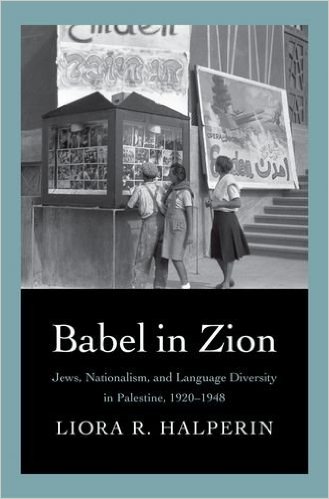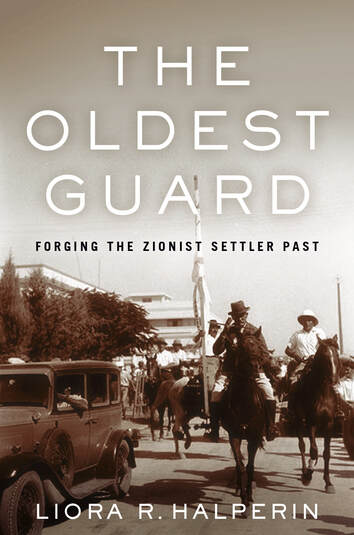The Oldest Guard:
|
The Oldest Guard is a history of local memory in and around the private agricultural colonies (moshavot) established by Ashkenazi Jewish settlers in late nineteenth-century Ottoman Palestine. Though they grew into the backbone of the wine and citrus industries of mandate Palestine and Israel in the twentieth century, absorbed tens of thousands of Jewish immigrants, and became known retrospectively as the “first wave” (First Aliyah) of Zionist settlement, the local history and collective memory of these private landowners and colonies has been eclipsed by the rise of Labor Zionism, the kibbutz, and collectivist conceptions of Zionism. But the earliest colonies maintained an avid interest not only in their own economic development but in their very status of “first.” Viewing their local commemorations and representations of Zionist “First Ones” as acts of producing a usable past rather than sources for an authentic reconstruction, and in light of memory practices in other settler societies, The Oldest Guard argues for re-situating a class of capitalist, moderate, and politically disorganized rural agriculturalists at the heart of a story of twentieth-century Zionism. Through ceremonies, commemorations, and stories of private landowners, early guardsman, and frontier heroism, the late nineteenth-century colonies promoted a model of a Zionism that combined religiosity, private enterprise, and a supposed sense of having preceded and transcended the nascent Zionist-Palestinian conflict through hierarchical economic relations rather than labor separation. This nexus of values, often lacking a strong political apparatus of its own, claiming moderation and distance from “politics”-- but with deep political consequences--appealed not only to descendants of founders but to an emerging array of forces on the political center and right that would seek and increasingly claim a voice in Zionist politics over the course of the 20th century. |
Babel in Zion: Jews, Nationalism, and Language Diversity in Palestine, 1920-1948
(Yale University Press, 2015) -- Order a copy of the book from Amazon or Yale University Press

Listen to a interview with Liora Halperin about Babel in Zion Ottoman History Podcast, April 4, 2016 New Books in History Podcast, September 10, 2015 Read a Review of Babel in Zion American Historical Review (Review by Jess Olson) International Journal of Middle Eastern Studies (Review by Barbara Mann) Modern Judaism (Review by Shaul Magid) Ha-Mizrah He-Hadash (The New East) [in Hebrew] (Review by Yoni Furas) Israel [in Hebrew] (Review by Hizky Shoham) Ha-zirah ha-leshonit (The Language Arena) [in Hebrew] (Review by Ruvik Rosenthal) The Yiddish Daily Forward [in Yiddish] (Review by Mikhail Krutikov) |
The promotion and vernacularization of Hebrew, traditionally a language of Jewish liturgy and study, was a central accomplishment of the Zionist movement in Palestine in the years following World War I. Viewing twentieth-century history through the lens of language, author Liora Halperin questions the accepted scholarly narrative of a Zionist move away from multilingualism, demonstrating how Jews in Palestine remained connected linguistically by both preference and necessity to a world outside the boundaries of the pro-Hebrew community even as it promoted Hebrew and achieved that language’s dominance. The story of language encounters in Jewish Palestine is a fascinating tale of shifting power relationships, both locally and globally. Halperin’s absorbing study explores how a young national community was compelled to modify the dictates of Hebrew exclusivity as it negotiated its relationships with its Jewish population, Palestinian Arabs, the British, and others outside the margins of the national project and ultimately came to terms with the limitations of its hegemony in an interconnected world.
|

